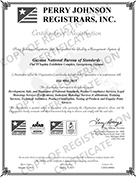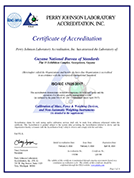Guyana joins other CARICOM Member states to observe CARICOM Day as a national holiday tomorrow, July 06. Developing, promoting, and implementing standards are crucial to member states, individually and collectively.
National Standards Bodies (NSB’s) across the Region, such as the Guyana National Bureau of Standards (GNBS) and the Trinidad and Tobago Bureau of Standards (TTBS) develop and promote standards at the national level. This ensures that there are established requirements for products and services offered to citizens, domestically, or across borders. Respective Governments support many of these Bureaus, while they rely on the cooperation of the private sector.
Also, through Regional projects, NSBs are supported to implement the components of internationally-recognised quality infrastructure (QI) for Standardisation, Conformity Assessment (including Accreditation) and Metrology, to meet requirements and satisfy global demands. These components of QI, which are necessary for bilateral and multilateral trade, are particularly important for developing countries like those in the Caribbean that need to build and grow their production sectors. QI services also provide a vital competitive advantage to local businesses and firms.
Regionally, Standards and Technical Regulations fall under Chapter Four of the Revised Treaty of Chaguaramas, specifically, Part Three, which addresses Common Supportive Measures. Article 67 requires that the Council for Trade and Economic Development (COTED), in collaboration with competent agencies, develop a Standardisation programme consistent with the international obligations of the Member States. The programme objectives include trade facilitation, enhanced efficiency in the production and delivery of goods and services; improved quality of goods and services traded within the Community and with third States; and consumer and environmental protection.
Additionally, CARICOM Member States established the CARICOM Regional Organisation for Standards and Quality (CROSQ) under Article 67 that was signed by the Heads of Government of CARICOM on 5 July 2001. CROSQ, as the Regional Standards Body, was established to facilitate the implementation of the Standardisation programme and assist the Member States in understanding and fulfilling their obligations under this Treaty of Chaguaramas and other international agreements. CROSQ also promotes the development of national standards bodies in the Member States; facilitate access to technical assistance available in the Member States and outside the Region.
To date, GNBS as an NSB has supported the development and adoption of more than forty Regional Standards. These standards primarily relate to agriculture and consumer products. These regional standards are adopted nationally and are being used in industry to improve the products manufactured, making these products readily acceptable on the regional market.
For further information on this subject, call the GNBS on Telephone numbers: 219-0064 or 219-0065, or visit the GNBS website: www.gnbsgyorg






